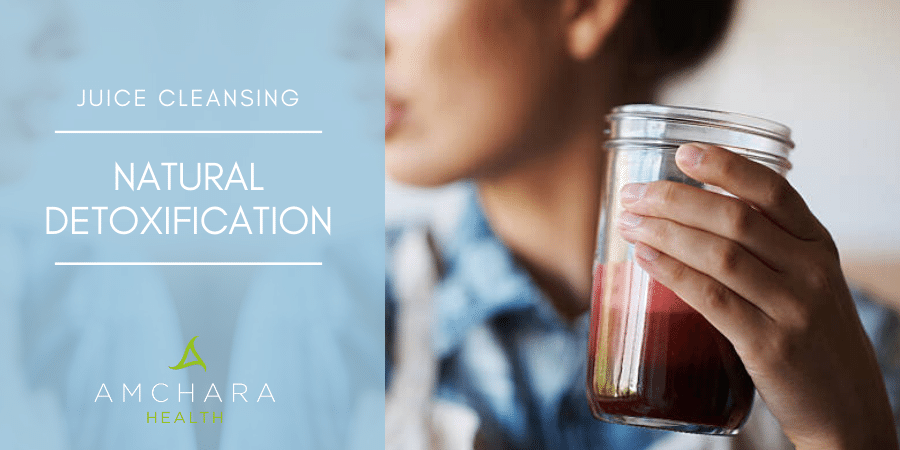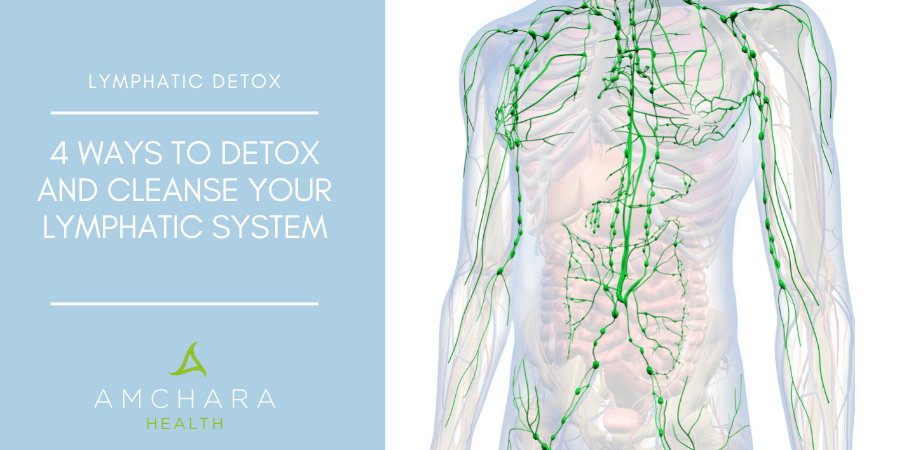Topics Covered in this article:
Are you feeling run down, tired and lacking in energy? Then how about a juice cleanse to boost your health and energy levels?
We always take an evidence-based approach and aim to provide you with actionable knowledge and tips to help you on your journey to optimal health – in this article we take a closer look at what’s involved in juice cleansing.
What is a juice cleanse?
During a juice cleanse, no solid food is eaten for a period of time. Instead, a number of vegetable and fruit juices are consumed throughout the day.
A short juice cleanse is intended to detoxify your body. Drinking only light, easily digested juices, a concentrated source of nutrients, can be the perfect pick-me-up, giving you a powerful transformation from the inside out. You’ll feel your health improve as your body rests and repairs, healing itself from within.
A word about fasting
The word fasting means going without any food at all, for a specific period of time. This is usually what we refer to when we talk about water fasting. Fasting has been around for years, so it’s nothing new. Many cultures and religions traditionally practice fasting, and it’s only relatively recently food has become available around the clock.
The idea of fasting is to give your body and digestive system a rest and let it concentrate on ridding itself of the toxins that have accumulated over time. Once your body has been without food for a period of time, its natural repair mechanisms will kick in.
Although some people may think of fasting in terms of losing weight, it appears to have more far-reaching benefits. Fasting has been linked to improvements in metabolic diseases like Type 2 diabetes, cardiovascular disease, high blood pressure and inflammation.
As well as water fasting, there are fasts where eating is restricted to certain time windows, otherwise known as intermittent fasting. You’ll also come across plenty of fasts allowing soups and broths, or those that allow raw food. Technically speaking, these are not fasts, because some food will be taken into the body, even if it’s consumed only in liquid form.
The same goes for juicing – because nutrients are taken in, juicing has different effects on the body to fasting. Although you’ll often see juicing referred to as juice fasting, it is also called juice cleansing.
Benefits of juice cleansing
A quick internet search will turn up hundreds of personal testimonials of the health benefits experienced after a juice cleanse. It’s often claimed a juice cleanse will also boost your immune system, improve your digestion, stabilise blood sugar levels, increase energy and build greater resistance to illness.
Vegetable and fruit juices deliver concentrated sources of vitamins and minerals, especially beta carotene, B complex vitamins and vitamin C. They also contain naturally occurring beneficial plant chemicals called polyphenols, which have been studied extensively for their many positive effects on our health, as potent antioxidants and inflammation fighters.
The existence of at least 8000 different polyphenols has so far been discovered. They are classed into several groups including flavonoids, which include antioxidants such as anthocyanins, quercetin and resveratrol.
Juices are also a rich source of natural enzymes, such as the protein digesting enzyme bromelain found in pineapple juice, which can give your digestion a helping hand, as well as being strongly anti-inflammatory.
Finally, plant juices are naturally low in sodium and rich in potassium.
Although the benefits of eating plant-based foods are irrefutable, scientific research on juice cleansing is a little thinner on the ground. This is not necessarily because juice cleansing is not beneficial, but because most science tests a product in order to eventually make use of that product. The funding often just isn’t there to test the effectiveness of dietary regimes like juicing.
Added to this, there are a lot of variables to control when testing the effectiveness of dietary interventions, making such studies difficult and costly.
- A juice healthy heart
One review of studies concluded fruit and vegetable juices support cardiovascular health (1). In particular, consumption of juices appears to be connected with a reduction of cardiovascular risk factors such as the stickiness of blood platelets, cholesterol levels and blood pressure.
This is not really surprising, because it’s known inflammation plays a part in cardiovascular disease. Juices are packed with antioxidants and the role of antioxidants in protecting fats from oxidation is well studied.
- Digestive wellness
When your digestion is not functioning at its best, it will affect every other part of your body, because health begins in the gut. If you feel sluggish and tired, the culprit can often be traced back to some aspect of digestive functioning.
A juice cleanse allows your body to quickly and easily absorb nutrients, without the need to exert hard work digesting foods, effectively giving your digestive system a well earned break. Certain carbohydrates, called oligosaccharides, found in juices can act as a food source for the beneficial bacteria residing in your gut.
Many of the polyphenols in juices aren’t broken down in the small intestine and instead end up in the large intestine where they are metabolised by these digestive bacteria into smaller compounds, which themselves influence the population of the bacteria.
A juice cleanse may therefore have positive effects on your microbiota – important for both healthy digestion and overall health.
- Weight management
During a juice cleanse, your calorie consumption will be reduced dramatically, without compromising on essential vitamins and minerals. Many people report at the end of a cleanse they feel lighter, and a juice cleanse has long been thought of as a great way to kick start a weight loss programme.
In one study, volunteers drank 6 juices daily comprising of green vegetables, apples, cucumbers, lemon, cayenne and vanilla bean. They ate no solid food for three days. The researchers found the participants had lost weight by an average of 1.7kg and their BMI had reduced at the end of the 3 days (2). Their weight remained lower after the volunteers had reverted to their normal diet. By day 17, they were an average of 0.91 kg lighter than before the study.
Also, the oxidation of fats measured in the participants’ urine was decreased, likely due to the high antioxidant content of the juices. At the same time, nitric oxide levels were increased. Nitric oxide helps blood vessels to dilate and is an important factor in cardiovascular health.
The two most abundant types of bacteria in the digestive system are called firmicutes and bacteroidetes. Interestingly, relative levels of these bacteria appear to be different according to body weight. Firmicutes are higher in obese people, while bacteroidetes are lower (3). Juice cleansing has been found in studies to decrease levels of firmicutes.
In the previous study, the decrease in these bacteria declined in tandem with the amount of weight lost. The bacteroidetes, on the other hand, increased significantly by the end of the cleanse, also correlating with reductions in weight.
- Juices and genes
Science is now discovering the beneficial effects of the plant chemicals in fruits and vegetables, which are concentrated in juices, exert their effects by influencing how our genes are expressed. This is known as nutrigenetics.
One forthcoming study aims to examine the effects of a 3 day juice cleanse on various markers relating to age-related diseases and lifespan. In particular, the study will look at epigenetic markers, in other words how the environment can alter the way genes are expressed. It will also assess the microbiome, plus inflammatory and glycaemic markers.
What is involved in a juice cleanse?
During a juice cleanse, you’ll be consuming just vegetable and fruit juices.
Because fruit juices are naturally high in sugars, it’s best to consume juices made predominantly from vegetables, with just a little fruit juice to add sweetness, such as apple or pear juice. That way the juices will have less of an impact on your blood sugar levels. It’s important the juices are fresh, pure and preferably organic. During a juice cleanse you’ll be taking in concentrated fruit and veggies, and it’s best to avoid contamination with pesticides and other chemicals.
Super juice ingredients
You can juice just about any fruit or vegetable, but our favourites are pear, apple, carrot, beetroot, celery, cucumber, kale, courgette, broccoli, lemon, lime and ginger. You can use any combination you like, according to your taste.
Why not try these ingredients for super healthy and delicious juices during your cleanse?
- Celery – a great source of potassium, calcium and vitamin C, as well as compounds thought to boost immunity. Celery has also been found to reduce blood pressure.
- Broccoli – contains indole-3-carbinol which assists the liver’s detoxification processes.
- Carrot – a good source of beta carotene, vitamins K, C and B vitamins.
- Beetroot – high in antioxidants, as well as being a great source of nitric oxide.
- Ginger – give your juice an extra kick with this anti-inflammatory ingredient, shown to support heart health and combat nausea.
- Turmeric – a potent anti-inflammatory and antioxidant.
It makes sense to use a combination of different ingredients, as each will contain their own unique combination of nutrients. By using a variety you’ll be taking in a broad range of beneficial phytonutrients.
Try some of these delicious juice combinations:
- apple, cucumber, celery, romaine lettuce, lemon, spinach, kale, and parsley
- apple, lemon, ginger, and beet
- apple, pineapple, lemon, kale and mint
At Amchara we like to add some extra nutritional powerhouses like alfalfa, mung beans and adzuki beans. We also include spirulina, a great source of protein. 7g of spirulina contains a whopping 4g protein and all the essential amino acids you need. It’s also a fantastic source of chlorophyll which is great for encouraging detoxification.
We also like to add an extra kick to your juice cleanse by including one or more shots in addition to the juices. Our favourites are wheatgrass, packed with chlorophyll and antioxidants, turmeric, ginger, maca or immune-boosting reishi mushroom. All these are extra sources of concentrated nutrition.
Will you feel hungry during a juice cleanse?
You may not need convincing that juices taste great, but many people who embark on a juice cleanse for the first time are surprised how filling the juices are.
Most of our clients at Amchara find after the first day or two they no longer feel hungry. Taking a supplement of psyllium husk before your juices helps you to feel full and chase away hunger pangs. Psyllium is a natural fibre which swells in your stomach once it comes into contact with water, giving you a feeling of satiety.
How long should you juice cleanse?
It depends on what you can fit into your lifestyle. Many people find 3 days an ideal time to start feeling the benefits of a cleanse.
However, you may prefer a longer juice cleanse, although longer cleanses are best carried out under the guidance of a Personalised Health practitioner. Longer periods may require supplementation with additional protein, to support the liver’s detoxification process.
How will you feel during a juice cleanse?
During a juice cleanse, your body is encouraged to naturally detoxify, meaning it will be cleansing itself. In the first few days, you may feel as if you’re slightly hungover.
Many people experience headaches, tiredness, muscle or joint aches or sweats and your skin may even break out in a rash. These are often termed ‘detox symptoms.’
Such symptoms usually naturally subside after a couple of days and clients report they experience a rapid increase in energy, vibrancy and wellbeing.
Kickstart your health today
If you feel you would benefit from giving your health a boost, a juice cleanse could help your body to naturally detoxify, leading to a brighter, healthier new you. Shop our new range of juice cleanses at Amchara Juicery today.
We’re dedicated to providing you with both insightful information and evidence-based content, all orientated towards the Personalised Health approach.
Did you find this article useful?
We would love to know your thoughts and with your comments we can continue the conversation.
Let us know your top tips for a great juice cleanse.
READ THIS NEXT:




